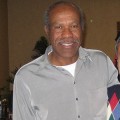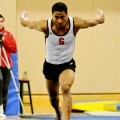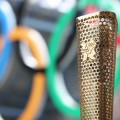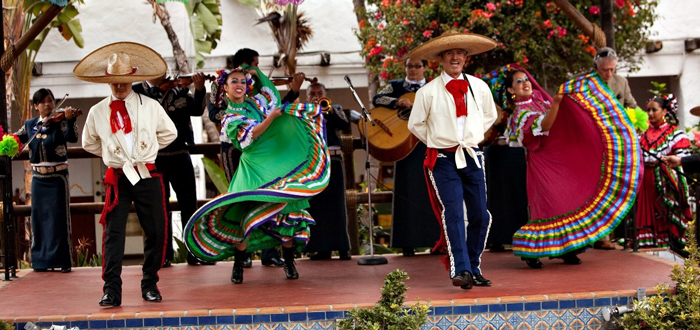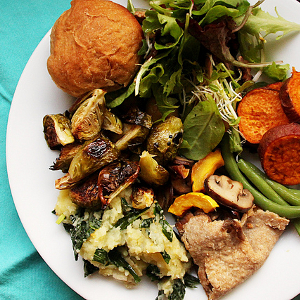Who can forget Tommie Smith, the SJSU student who played wide receiver for the Cincinnati Bengals and was the first person to break the 20 second barrier for the 200 meter dash, at 19.83 seconds. It was a record that would stay on the books for over four decades, until it was broken in May 2010 by Tyson Gay.
Smith is certainly remembered for that race, but even more for the Olympic medal ceremony that followed. Both he and teammate John Carlos raised clench, gloved fists in a Black Power salute, that remains an iconic image of the 1968 Mexico City Olympics.
What the famous photo doesn’t show is that the two men also received their medal shoeless and in black socks, to represent Black poverty in the US. Smith wore a black scarf to represent Black pride, while Carlos unzipped his track suit to expose a black T-shirt, in solidarity with American blue-collar workers. He also wore a bead necklace, representing all of the past victims of lynching. The medal seemed almost secondary to the symbolism surrounding its acceptance.
The two men were ejected from the games because of the incident. International Olympic Committee President Avery Brundage deemed the act a domestic political statement, and called it inappropriate for the apolitical international sporting event. Nevertheless, an American sports legend was born, right in the heart of the turbulent 1960s. A statue depicting the two men receiving their medals now stands on the SJSU campus.
Now Smith has announced that he is selling the medal that became a piece of history. The medal will be auctioned off at the M.I.T. Memorabilia auction in New York. Bidding will start at $250,000. There are reports that he plans on selling his running shoes too, though it is also reported that he gave one of the shoes to Olympian Usain Bolt of Jamaica, after he won three gold medals at the Beijing Summer Olympics in 2008.
Smith, now 66, admits that he is selling the medal for the money, but adds that he also wants to share it with the public. Bidding ends on November 4.
See More on BBC 4.
Read More at NBC Bay Area.
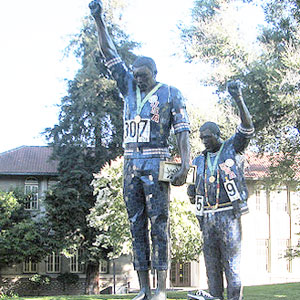
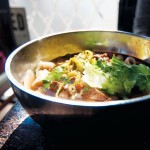 Tops in Taiwanese
Tops in Taiwanese 